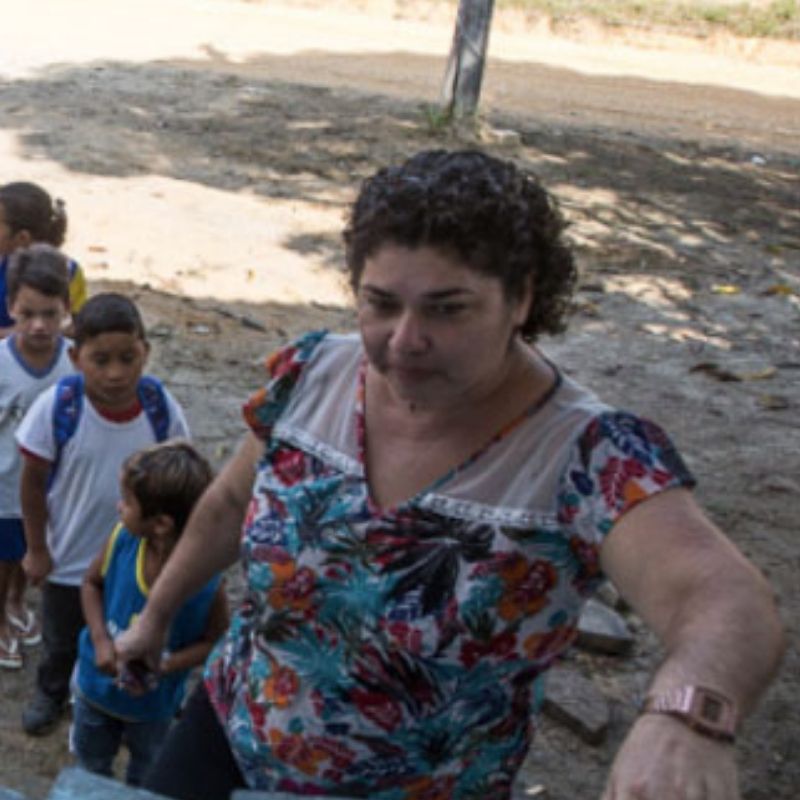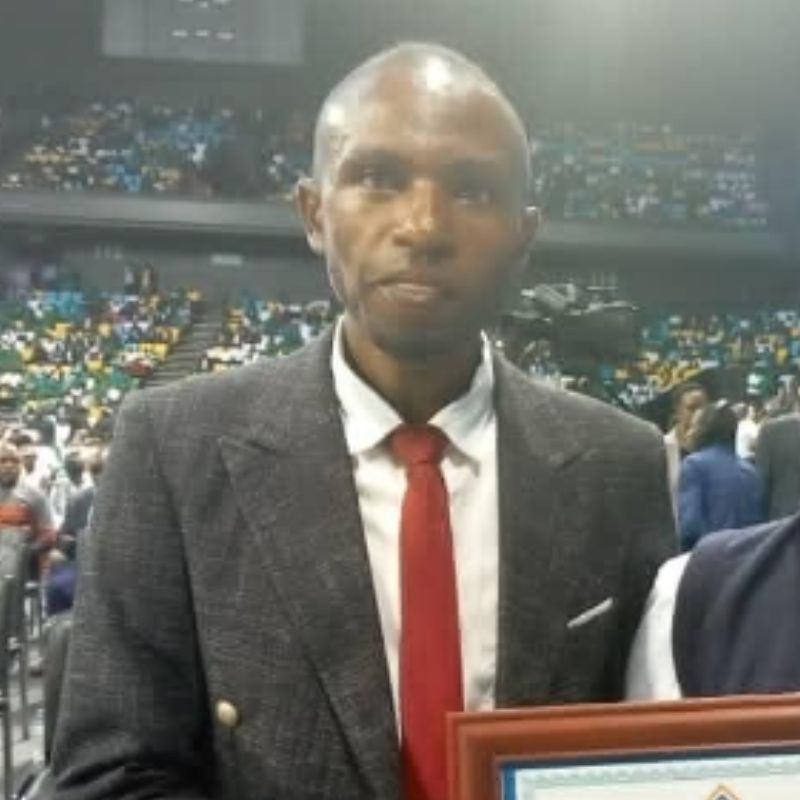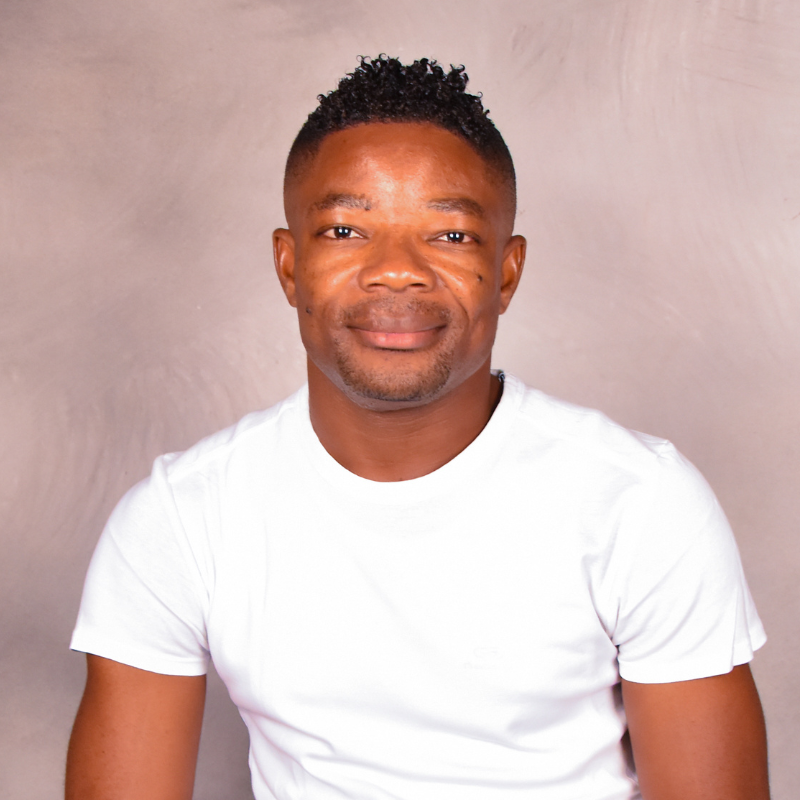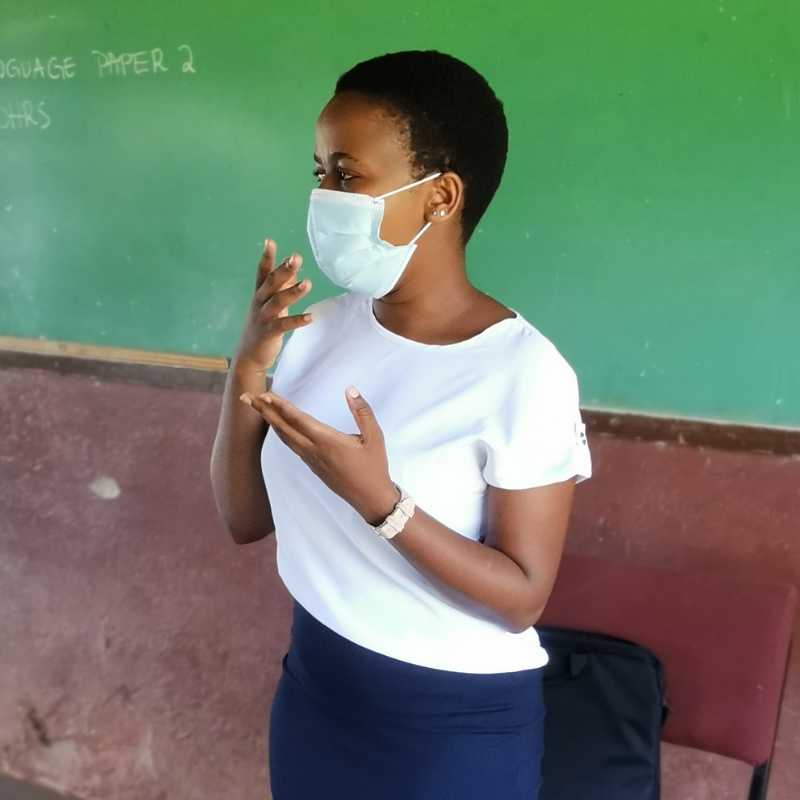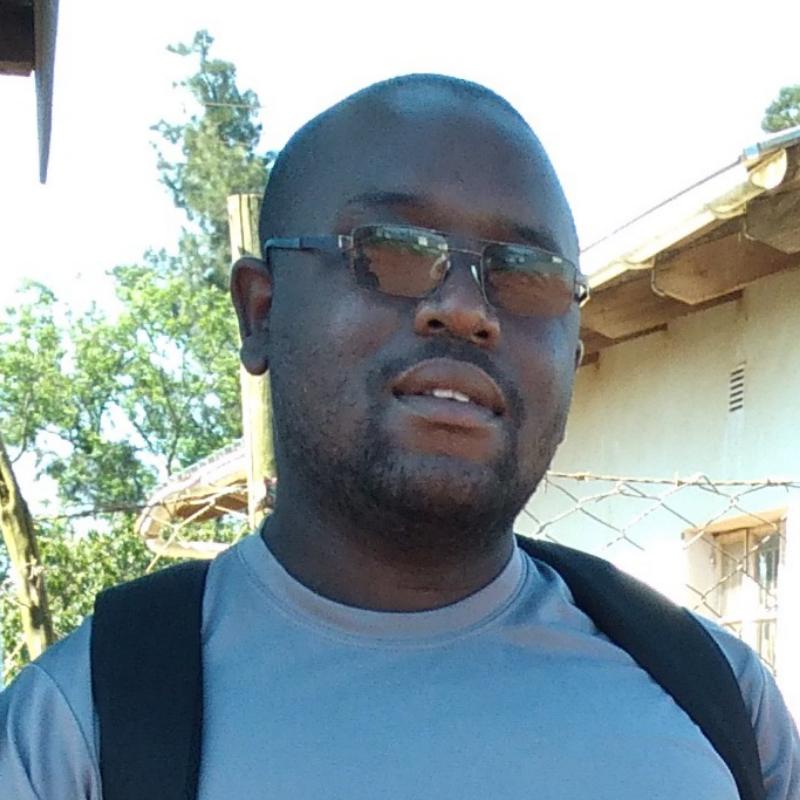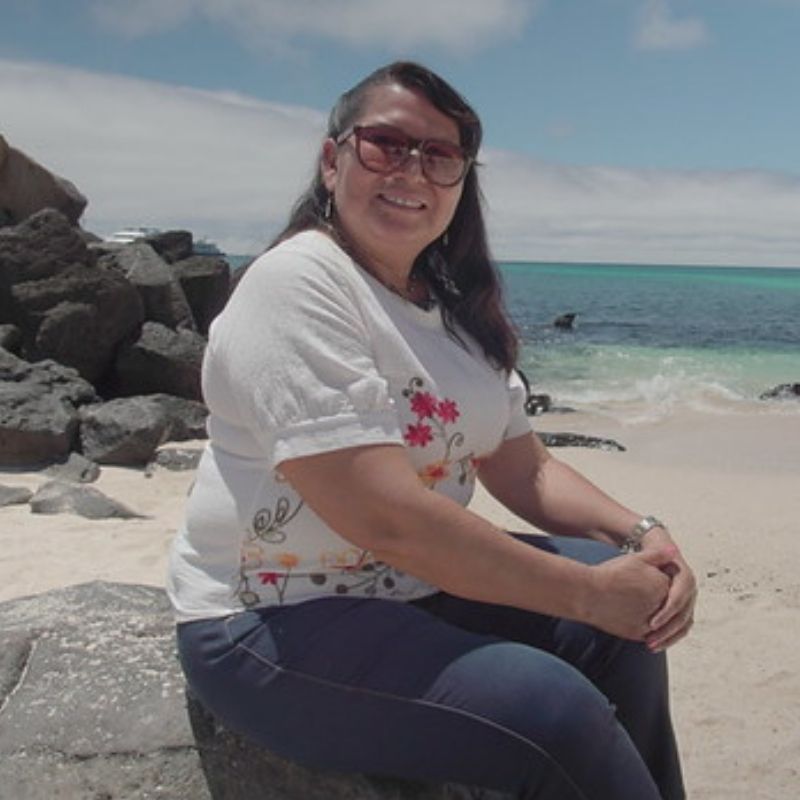ProFuturo is a digital education programme for the improvement of educational quality, using digital tools, in vulnerable environments and does so with a dual strategy: on the one hand it improves teacher training at the techno-pedagogical level and, on the other, it promotes meaningful student learning through motivational digital learning experiences.
Share
“Every day is a challenge. No adventure without excitement!”
Ana Andréa Souza Lima, better known as Andréa, defines the journey to the Municipal School Professor Zilda Iracema Melgueiro Nunes, where she has been working as the principal for a year, with passion and strength. Located in Ramal do Rio Branquinho, in the middle of the Amazon rainforest, the school is a true reflection of the great effort required in the search for knowledge and how worthwhile this fight is. Getting to the Zilda Iracema school from Manaus takes about three hours on an unpaved road that emerges from the Ramal do Rio Branquinho. For those who work there, the day begins before dawn. The school bus leaves the Amazonian capital at six in the morning and in it travel the headmistress, teachers and other professionals. This is her inspiring story.
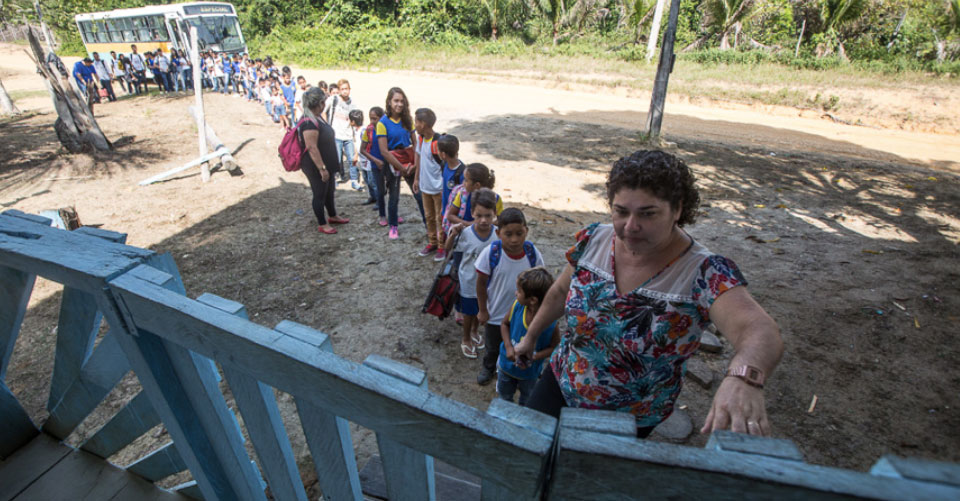
It is almost six hours a day in the vehicle during which the teachers take the opportunity to chat and plan with the director, and also to listen to music and distract themselves before the students, who start getting on the bus from kilometre 9 of the BR-174, finish occupying the whole vehicle and there is no more room for anything else.
On the way, it is common for the principal to meet some of the parents who are waiting with their children for the school bus to arrive. There are no daily lines that run between Ramal do Rio Branquinho and Manaus other than this bus. The only transport that covers this route runs only once a week.
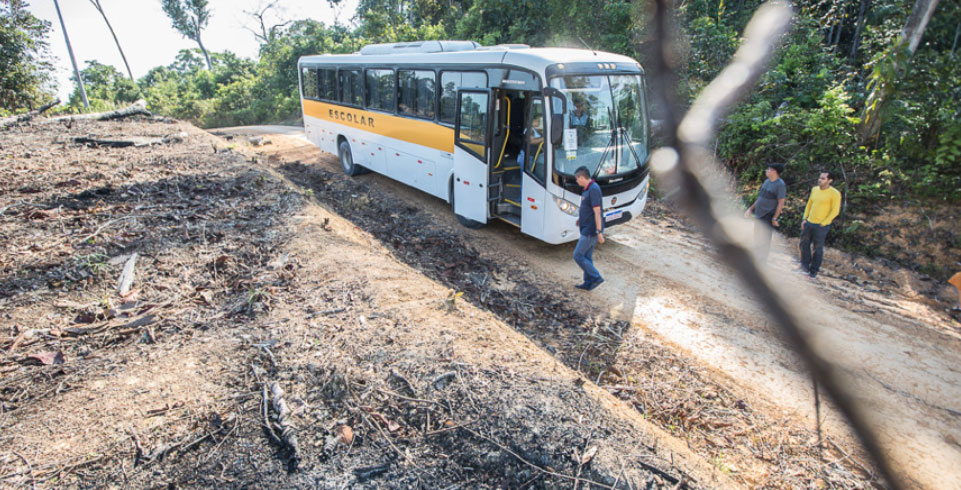
Along the way, through the window you can see very leafy trees, as tall as skyscrapers, streams, lakes with wooden canoes and a dense forest with reddish, yellow and green tones that looks more like the work of a painter than of nature. There is no trace of asphalt, no office buildings, and no traffic lights. From time to time, a little wooden house in the style of a stilt house bursts through into the landscape and, on small wooden signs; the names of the places that follow are indicated one after the other: “Menino na Porteira”, “Ana Caroline”, “Chapéu de coco”, etc.
Arrival is scheduled for nine o’clock in the morning, but the actual duration of the trip is up to nature. In an area of high rainfall and great environmental complexity (it is the largest jungle in the world!), torrential rains, falling trees over 60 meters high or unexpected encounters with anacondas, agoutis, pacas and other animals can delay or even prevent the start of classes. At the end of the 2019 school year, in August, days without school due to weather conditions totalled thirty-two, mostly because rain made the road impassable. However, the team is doing its best to make up for lost days.
José Adiel Barbosa, a school bus driver for the past two years, has lost count of how many times he has had to use his ingenuity to get the children to safety when a storm breaks out, to divert animals off the road, or simply to overcome a bumpy ride that forces him to shred the tires and kick up a huge amount of dust as he climbs hillsides. “In a rural school, even the driver has to do his part,” says Andréa. “A less committed person would turn back as soon as the first drop of rain fell.”
“I wouldn’t trade it for the world.”
At the end of their journey through the jungle, the professionals and the 67 pupils, who range from nursery school to the 9th year of primary school, finally arrive at the school, a wooden building surrounded by greenery. The windows have no glass and there is no double roof. Inside, four small classrooms, the management and administration office, the material room, the kitchen, the dining room and a shared toilet for boys and girls make up the limited available infrastructure. There are no handrails or railings on the stairs connecting the ground floor to the first floor, so children cannot climb. The director, with the help of the staff and the community, fights to make improvements to the facilities, such as replacing the roof tiles and building another toilet and a small playground for the children to play in. The classes are multi-grade, with children of various age groups.
The school has no telephone line and mobile phones do not work, as there are no antennas. Internet access is possible using the Municipal Education Secretariat’s mobile device when electricity is available, but service interruptions are frequent and sometimes both the school and local residents can go without power for several days at a time.
The obstacles typical of the rural area strengthen the bond that the principal, the eleven teachers, the cook, the driver, the monitor and the general services assistant have forged with the school and its students and vice versa. “I love this place. I’ve found my place in the rural school and I wouldn’t change it for the world,” says Simone Pantoja, who has been teaching from the first to the fourth grade for the past four years.
Just a few minutes of interaction with the students is enough to understand why the teacher and her classmates feel this way. Living in an area where the bus to Manaus runs only once a week, where no one has a car and the infrastructure is rudimentary, the little ones value everything the school offers them, from the chance to study and overcome illiteracy – a problem that affects many of their parents – to the hot meals they enjoy every day.
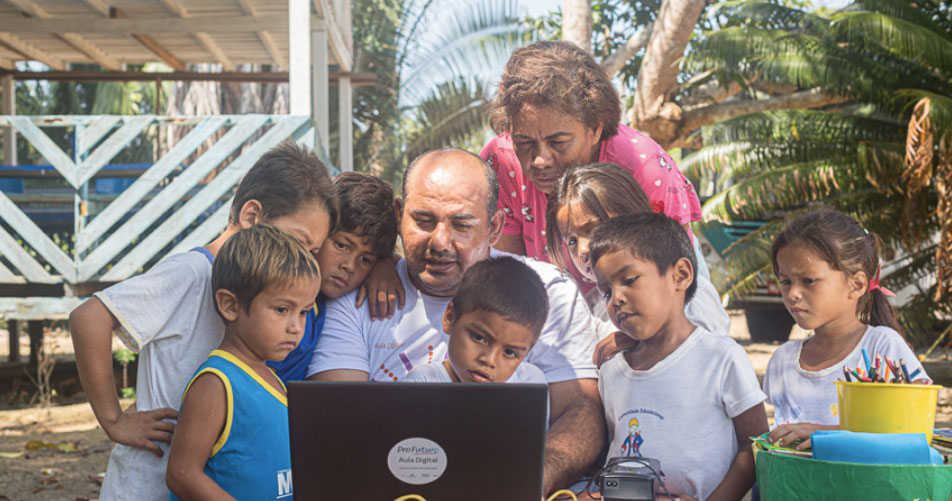
The tablet class
In Infant Education, as there is no classroom available, the class takes place in the dining room, which is on the school porch or on the lawn, in the shade of the copoazús. No toys in sight. Outdoors, teacher Gutnéa Nunes de Azevedo’s students play in circles, take off their shoes, climb trees and take advantage of the most awaited activity of the week. “The class of the tablet is the one I like the most,” explains one of the children, Raí, about ProFuturo’s Digital Classroom. “And the food, too.” Full of pride, he tells us that he is eight years old, but his height and the innocence of early childhood reveal that he is actually four years old.
Nine other children are in the same class as Raí and they all love the ” tablet class”. Among them is Viviane, her five-year-old cousin, and her little brother, Josué, who is four. While taking pictures with the device, Josué explains that one day he went fishing with his dad and caught “a fish the size of the school” to eat with his family. On lucky days, when he goes fishing with his father, the boy boasts of having caught crabs and piaba fish.
Taking advantage of the fact that the conversation is about animals, her classmate Ana Sofia, 4, shows the wound that Chimba, the monkey she has as a pet, inflicted on her leg. “But I still love it,” she quickly adds. They all like tablet games and playing with dolls. Football also plays an important part in their leisure time and both boys and girls play it without hesitation.
The life of the little ones unfolds around the Branquinho River Branch. They rarely visit other places and many of them do not know Manaus. Someone who has visited the state capital is Vivi: “I liked it a lot, I ate ice cream and sorbets,” says the girl, who in addition to Manaus also went to Codajás, her mother’s birthplace, where she bathed several times in the waterfalls.
Rayciane, Raí’s eight-year-old sister, also liked Manaus. “There was a park and I played a lot,” she recalls. Her little brother has never been to the big city and does not want to imagine what it is like. “I have never been, how would I know?” he argues.
Like other children, Rayciane gets up early to help her mother, who has three other children and is pregnant with her fifth. Unlike her daughter, she never learned to read. Rayciane does everything at home. “I carry the little ones, do the dishes and cook,” she says and adds that her speciality is pasta. The family shares a one-room wooden house on the edge of the road, with the sides of the porch closed off by pieces of plastic.
A moment that changes everything
Viviane, Josué and their four brothers (Amilton, Orleam, Cristiano and Evertom) do not go to school alone. Their mother, Salvani Marinho, 31, does her best to go with them, and sometimes her husband, who goes by the name of Palhinha, joins them. Salvani enjoys the opportunity to study for the first time, by attending fifth-grade class or taking advantage of the principal’s tutoring in the little time she has between assignments.
Salvani is originally from Codajás, the “land of the açaí,” a municipality of 28,000 inhabitants, 300 kilometres from Manaus. She was unable to study because her father prevented her from doing so and put her to work at the age of eight. “I was carrying a 20-litre jerry can of water by myself and preparing food for a lot of people,” she says sadly.
His memories of his childhood and adolescence are very tough. “My father never let me study. I learned to read by myself, with the Bible, but I did not know how to write. I would see the girls go to school and I would cry,” she recalls. They also did not always have something to eat. When things got bad, her mother, whom Salvani loved dearly, would kill an alligator or some other animal to feed the family.
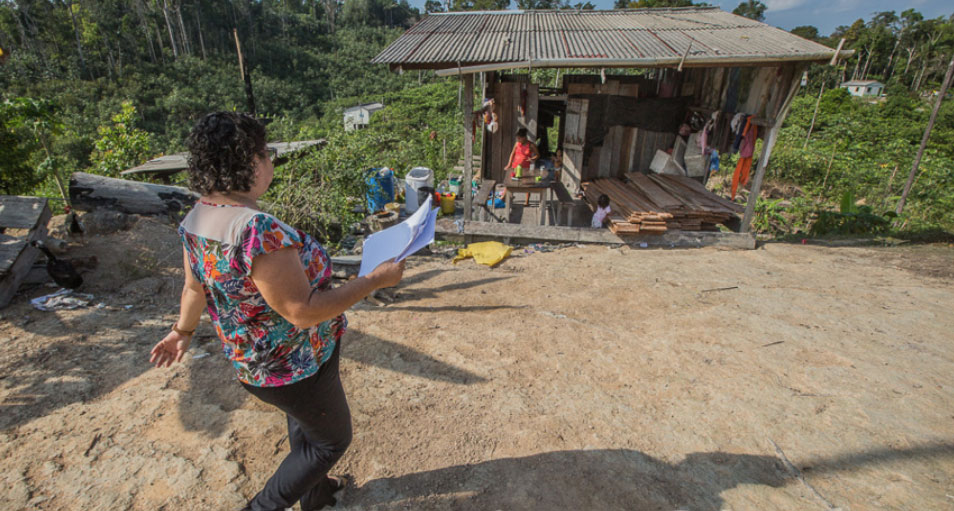
Today, both she and her husband are farmers. With him and his six children, aged fifteen to four, they live in a wooden house on a half-hectare plot of land a few miles from the school, where they raise chickens and grow bananas, cassava and eight hundred feet of black pepper. In addition to working on the farm and caring for her children, she spends much of her time caring for her 110-year-old father-in-law, who lives with them. All this hustle and bustle does not stop her from applying herself to her studies and making sure her children do the same. Anyone who gets under a seven gets a good scolding. “They’re getting an opportunity I never had. If they don’t take advantage of it now, they will regret it later,” the mother explains.
She fulfils her purpose of studying in spite of her parents’ strong resistance, who expected her to stay at home and work. However, Salvani does not give up and has the support of her husband, who studied up to the sixth grade. “We help the children with their homework. He studied more than I did, but I think I understand the questions better,” she celebrates.
Salvani has a hard time finding happy memories, but she believes that the time when she finally managed to study has been the one that has marked her the most. “I’ve never been so happy. The teachers bet on me, encouraged me and supported me,” she explains. “Some people, even if they’re not your family, can give you so much more than what a parent can.”
Her main goal right now is to pass the exam to get her 5th grade diploma. The teachers and the principal are confident that she will succeed. When she finishes primary and secondary school, she wants to continue her studies and dreams of becoming an agricultural engineer. If she does not make it, she would also like to be a reporter and travel wherever she is sent. “Look at the girls from ProFuturo who have come to produce the book. They are from São Paulo and they came all the way here through the Branquinho River branch to do their work!” she explains enthusiastically. Keep it up, Salvani. As you learned in school, you have the right to believe that dreams come true and to fight for them.



